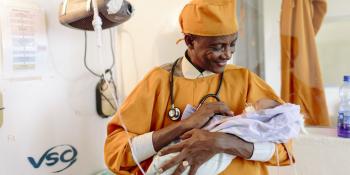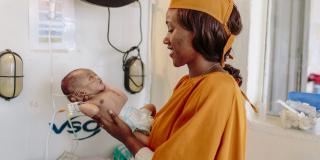
Thanks to funding, support and expertise from VSO, the Neonatal Intensive Care Unit at Arba Minch General Hospital has rapidly become a regional centre for best practice for the care of premature or sick babies and their mothers.
The Neonatal Intensive Care Unit (NICU) is a quiet corner amidst the hustle and bustle of the busy hospital. Situated at the back with views over the hills, the unit is separated, meaning visitors can’t mill around as they do on other wards. This retains the peace and quiet the mothers and babies need and - essentially - helps prevent the spread of infection.
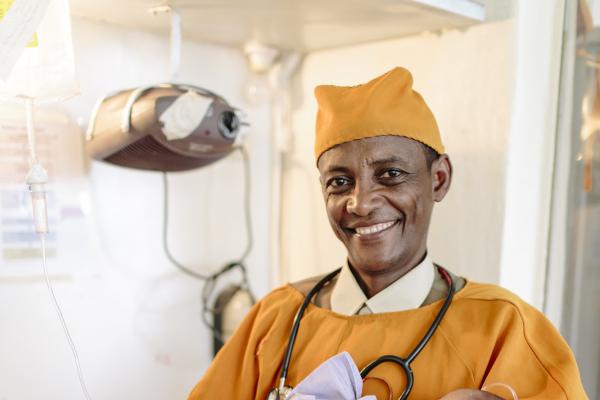
While many NICUs are restricted in the space they have, at Arba Minch the unit occupies a whole corridor. There is an intensive care unit, a Kangaroo Care room where premature babies are moved to after they have left intensive care, a separate room for babies with infections such as meningitis and a mothers’ room where women spend one or two nights for final monitoring before taking their babies home.
In the centre of the care and treatment rooms is the nurses’ area, which is a hub of activity and conversation. Manuals line the bookshelves, the walls are covered with information posters, and guidelines and data charts display facts and figures underlining the team’s success.
The unit has been open for a year and was established with the support of VSO volunteers Dr Jo Cryer and Dr Andrew Cornish, with funding from VSO towards the cost of equipment and training for staff. The impact of the unit is significant: despite being just a year old, it is already an example of best practice and nurses from hospitals in the surrounding area travel there for training.
Supporting mothers to care for their babies
It's not just other professionals who benefit from the nurses' skill sharing - alongside caring for the babies on the unit, they also provide advice and coaching for the mothers. Nurse Firhiwot Dagne explains: “In the past there was no mothers’ room near NICU – they had to come from the maternal ward to feed their babies but since the NICU has room for mothers, the service is comprehensive. We teach about hygiene, breastfeeding and nutrition so they can care for their babies after they are discharged. So the NICU now has the maternal and newborn care in the service.”
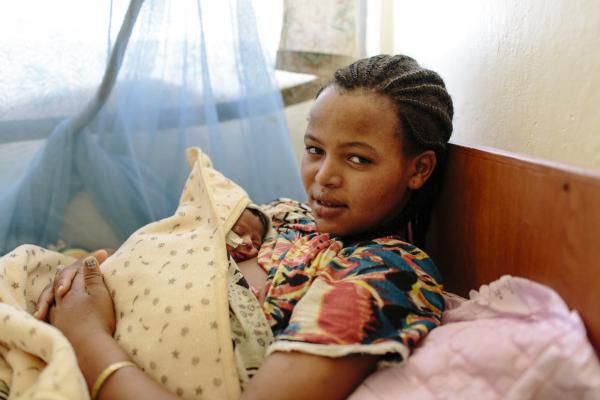
One of the mothers currently in the unit is 18-year-old Haimanot Haile, whose baby boy was born prematurely after five days of labour. Weighing just 1.6kg when he was born, he spent a number of days in intensive care before moving to the Kangaroo Care room, an area where mothers learn techniques for caring for premature babies.
“During my two weeks’ stay here in the NICU I observed that the level of care for me as well as for the baby was high. The nurses are good, the care is good, they advised me how to feed the baby and his weight increased. Everything is good."
Had my baby and I been at home, the situation would have been worse.
The team at Arba Minch may already be offering excellent care but they are ambitious for their unit: over the next year they plan to expand, to allow more mothers and babies to experience the same level of care that Haimanot has received.
Find out more about our work in:
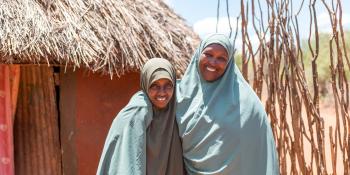
Ethiopia
We've worked in Ethiopia since 1995, building healthy communities and strengthening inclusive education systems.

